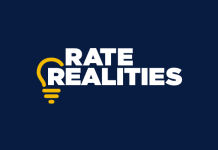How many voters does it take to pass a local special tax?
Since Proposition 13 in 1978, voters have had the final say on local tax increases. A subsequent initiative passed in 1996, Proposition 218, further required most local tax measures to gain approval by two-thirds of voters, whether proposed by a local government agency or by citizen initiative. (The exception to this is “general” city or county taxes that do not earmark where proceeds must be used, which can be approved by a simple majority of local voters.)
Small Loophole
But a recent California Supreme Court decision opened a small loophole in Proposition 218, where the court declared that statutes proposed by voter initiative need not be held to some of the same procedural standards as statutes proposed by local government agencies.
In California Cannabis Coalition v. City of Upland, the court found that Proposition 218’s requirement that all tax measures be decided at a general election (as opposed to a primary or special election) did not apply to measures placed on the ballot by initiative.
Having established a procedural distinction between tax measures based on their provenance, the court left open the reach of this distinction. While the rhetoric was broad, the remedy was limited. The court ruled that the tax proposal should have been considered at a special election. It left for another day whether its reasoning would extend to the vote threshold for approval of special taxes.
That day has come.
San Francisco Case
San Francisco voters recently approved a gross receipts tax on commercial leases to use for child care and early education — therefore it is a “special tax.” Although proposed by several county supervisors, the measure was placed on the ballot by petitions signed by San Francisco voters. The measure was approved by 51% of voters last June.
The San Francisco officials were doubtless inspired by the court’s general discussion of the difference between a local governing board and local voters, seeing this as an opportunity to eviscerate the two-thirds special tax voter threshold. No credible expert agrees that the court has already opened the door to majority-vote special taxes, but San Francisco is pushing on it.
Last week the Howard Jarvis Taxpayers Association (HJTA) filed a motion to invalidate the tax, based on the plain meaning of Propositions 13 and 218, and the case law allowing voters to step in the shoes of local governing boards. HJTA has insisted that the court’s ruling on Upland “centered on when a tax election should take place, not necessarily whether it needed two-thirds or 50% plus one to pass.”
More to Come
San Francisco is not an outlier. Other cities are considering arranging special tax hikes via initiative on upcoming ballots, using the Upland dodge. Fresno is considering whether to place a sales tax increase on the November ballot for parks, using the initiative process to backstop the two-thirds vote threshold, should the Supreme Court bless the San Francisco tactic.
The stakes are high for taxpayers; the San Francisco case bears watching.


